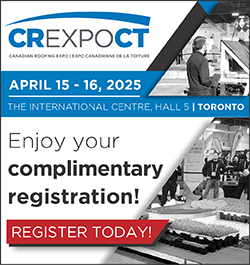Balancing Price and Value in Your Sales Strategy

By Ingage.
Find the perfect balance in your valuation of your services with these tips from Ingage.
It’s important to carefully consider the pricing of a product or service in order to maximize profits while still remaining competitive when closing a sale. Striking the right balance between pricing and competitiveness can be difficult, but it is essential for sustained success. Thankfully, there are strategies that can be employed so the right pricing is achieved without sacrificing too much. By utilizing these strategies, your next pitch should result in an agreement which both parties are satisfied with.
Focus on discussing value over price
Other competitors to your product may come with a cheaper price tag. In fact, considering the wealth of options in today’s market, your client can almost certainly always find a cheaper option. Why then should they choose yours? Value-based selling can provide the answer.
Remember that most B2B and high-end B2C shoppers don’t purchase specifically because of price. Instead, people buy from companies that can solve their problems in the most efficient, reliable way. Quality can often trump a lower price tag — after all, most business professionals realize people get what they pay for. A product or service that offers a unique solution can easily win the day, no matter the dollar amount. Discuss the specific value your product or service offers above your competitors. A clearly defined showcase of elevated features can easily justify a higher price.
Of course, to present a unique solution, you first have to understand your competitors. What are their strengths and weaknesses? Their price points? What do they say about you? Understanding how to differentiate yourself from the competition in a meaningful way without being disparaging is a key component of a value-based sales strategy.
Identify your customer’s problem clearly
The perceived value of a product lives between the price you charge and the benefits the customer expects to receive. Accordingly, it’s important to quickly identify your customer’s problems. Sometimes the problems are easy to spot; at other times they may not be so clear. Ensure that your sales strategy hinges on solving a problem for your client, not just showing off features — make them understand the value.
Strategize your communication
Overall, you’ll need a careful roadmap of how and when to communicate. For example, don’t lay it on too early. Take note of your product and proceed slowly and swiftly, taking care to educate, not necessarily overtly sell. Some of the most effective sales strategies don’t necessarily involve a pitch. Instead, they are more informative and educational. Decenter your product and center your client’s problem.
Price strategically
Your price is your price, and you should do your best not to budge on it. However, that doesn’t mean you can’t frame it in a friendlier way. Use price to your advantage when forming your sales strategy.
For example, consider limiting choices within your own product pricing options by pricing various items similarly. Or you might slightly undercut a competitor’s price, as variance is shown to influence shopper readiness to buy. One Yale study found that “small differences draw more attention than identical attributes do,” and encourage people to make a choice more readily. A slight fluctuation from a competitor’s price — even as little as two cents — could drastically increase consumers’ purchase rates.
In a similar vein, price anchoring is another sales strategy that plays on consumer bias. Start by pitching a drastically higher price you “should” charge — the high anchor — then offer your actual amount. People perceive price relatively — your client will view this “new” price in relation to the higher number, and be delighted by the “discount.”
You can also sometimes reduce price pain points by reframing pricing. For example, if you usually describe the price in an annual lump sum, consider reframing it on a month-by-month basis. Breaking down an unwieldy figure into more manageable, relatable amounts can make the total cost seem less intimidating.
While you may have a fixed price in mind for your product (and you should!) the way you describe it should operate more flexibly. You should never lie to a customer about your price — but you can spin it to seem more approachable.
Object to objections
Having a prospect turn you down solely because your price is too high is always a frustration. However, it’s also inevitable. Since it will eventually happen, part of your strategy should include preparing your sales team with a list of common objections and how to handle them.
Be agreeable, but don’t compromise your bottom line. Perhaps make your client feel like they’ve won on something other than the price, to make up for it. Or simply commiserate — it may feel counterintuitive, but tell them they are right! This makes a client feel like you personally are on their side, at least. But then, pivot quickly away from price and back to the advantages of your product or service.
If you’re in a position to materially change your offerings, you could also offer several higher and lower tiers of service for matching prices. For example, you might pitch them that “for $500 less, we can offer you Product X without Y and Z features.” This sends a message that you aren’t going to budge on pricing. It also avoids unapproved price drops in the heat of the negotiations.
Leverage sharp angle closing techniques
Many clients, even if they are already leaning toward signing, may try to negotiate a price cut at the last minute. If your sales manager approves, try the sharp angle close to catch prospects by surprise and disarm this end negotiation. The sharp angle close is a strategy we’ve all seen — tacking on a quick discount if the client signs today.
The idea is to not actually lower your price but to make your potential client think you are. Consider this a nice blend of assertion and accommodation to satisfy all parties. No one wants to miss out on a deal. This sales strategy beats clients to the punch and offers them terms to make them sign on immediately.
In some cases, this might mean something as small as a few hours of training at a discounted rate. Consider something so tiny that it doesn’t cost your team much, but seems like an added value on the client’s end — enough to spark their interest and close the deal.
Equip your sales team with the best tools
These techniques can all help optimize your sales strategy — and so can the best technology. When it comes to finding an innovative, collaborative presentation software that can help your team craft compelling, original pitches, look no further than Ingage.
Whether it’s building compelling stories from scratch, using samples to enforce cohesive branding, tracking analytic data across presentations or sharing among sales reps in real-time, Ingage can level up your team and set you ahead of the competition.
Want to know more? Reach out today and let’s get you set up with a free demo. Our sales team will guide you through building your first custom presentation and the various team and analytic features, and set you on the path to success.
Learn more about Ingage in their RoofersCoffeeShop® Directory or visit www.ingage.io.
Original article source: Ingage























Comments
Leave a Reply
Have an account? Login to leave a comment!
Sign In